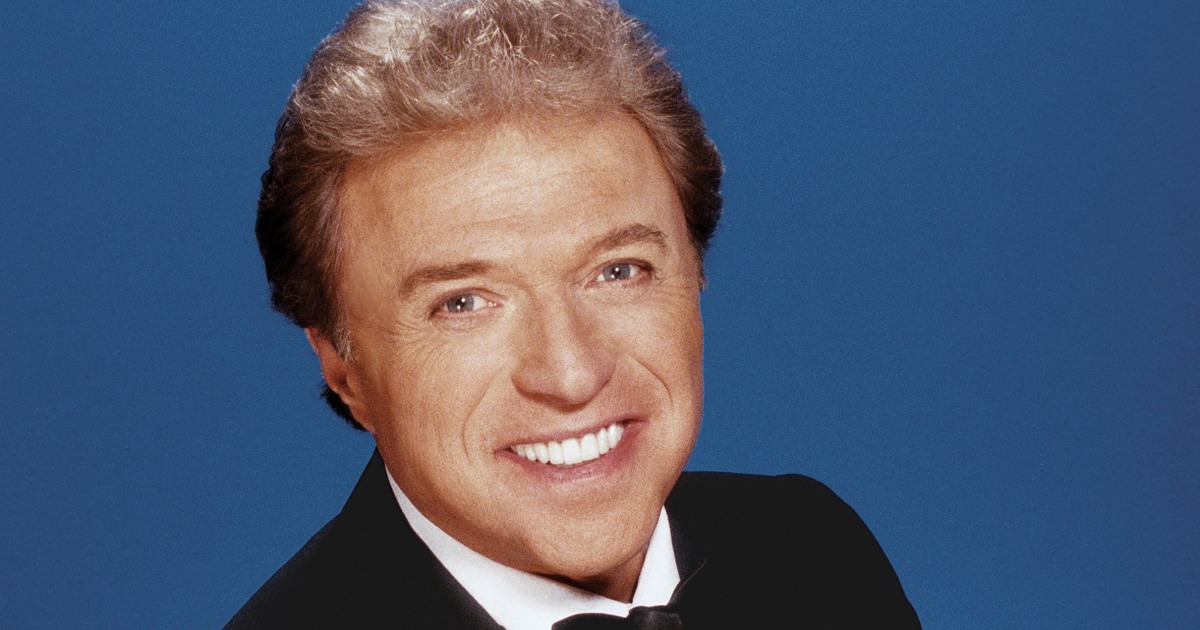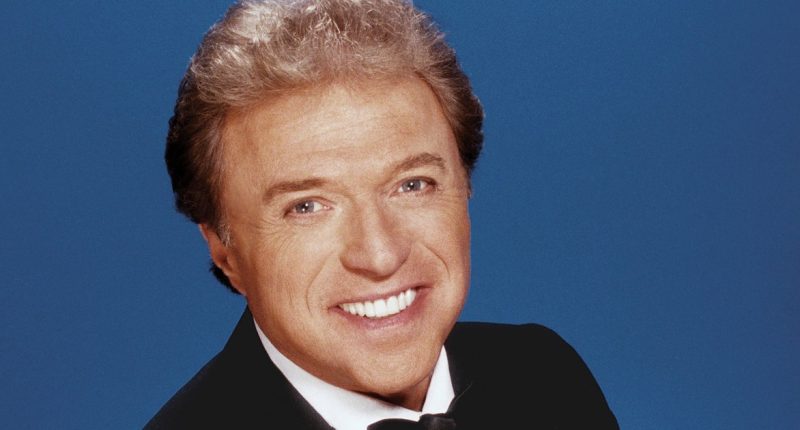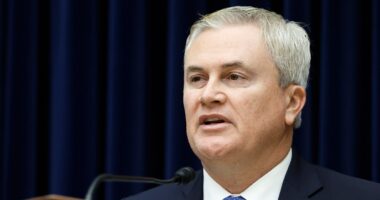
Although Lawrence and Gorme were best known as a team, both also had huge solo hits just months apart in the early 1960s.
Dionne Warwick, a longtime friend, said in a statement that Lawrence was “resting with comfort in the arms of the Heavenly Father. My heartfelt condolences go out.” Carol Burnett, in a statement, called Lawrence one of her favorite guests on her variety show. “He was also my very close friend,” she said. “He will always be in my heart.”
Lawrence scored first in 1962 with the achingly romantic ballad “Go Away Little Girl,” written by the Brill Building songwriting team of Gerry Goffin and Carole King. Gorme matched his success the following year with “Blame It on the Bossa Nova,” a bouncy tune about a dance craze of the time that was written by Brill hitmakers Barry Mann and Cynthia Weil.
By the 1970s, Lawrence and his wife were a top draw in Las Vegas casinos and nightclubs across the country. They also appeared regularly on television, making specials and guesting on various shows.
In the 1980s, when Vegas cut down on headline acts and nightclubs became scarcer, the pair switched to auditoriums and drew large audiences.
“People come with a general idea of what they’re going to get with us,” Lawrence said in 1989. “It’s like a product. They buy a certain cereal and they know what to expect from that package.”
Lawrence launched his professional singing career at age 15. After two failed auditions for “Arthur Godfrey’s Talent Scouts” TV show, he was accepted on the third try, going on to win the competition and the prize of appearing on Godfrey’s popular daytime radio show for a week.
King Records, impressed by the teenager’s strong, two-octave voice, signed him to a contract. His first record, “Poinciana,” sold more than 100,000 copies, and his high school allowed him to skip classes to promote it with out-of-town singing dates.
After several guest appearances on Steve Allen’s television show, Lawrence was hired as a regular. When the program became NBC’s “Tonight” in 1954, he went with it, singing and exchanging quips with Allen. The series set the pattern for the long-running “The Tonight Show.”
“I think Steve Allen was the biggest thing that happened to me,” said Lawrence, who stayed with the show’s host for five years, honing his comedic skills and attracting a wide audience with his singing. “Every night I was called upon to do something different. In its own way it was better than vaudeville.”
Early in the series’ run, a young singer named Eydie Gorme joined the cast. After singing together for four years, she and Lawrence were married in 1957.
Until Gorme’s death, in 2013, they remained popular, whether working together in concert or making separate TV appearances.
His reasoning: “If we did television together all the time, why should anyone go see us in a club?”
He appeared in such shows as “CSI: Crime Scene Investigation,” “Gilmore Girls,” “Diagnosis Murder” and “The Nanny.”
He and his wife did star together in “The Steve Lawrence-Eydie Gorme Show” in 1958 and Lawrence had his own series, “The Steve Lawrence Show,” in 1965.
He also made stage appearances without Gorme, including a starring role in a 1962 summer stock version of “Pal Joey.” He made it to Broadway in 1964 — and earned a Tony Award nomination — in the musical “What Makes Sammy Run?” based on Budd Schulberg’s classic novel about a New York hustler who claws his way to the top of the entertainment world.
Critics praised Lawrence but gave the play bad reviews. Still, it turned a profit, and insiders attributed its success to his performance.
Lawrence also had a few character roles in movies, most notably “Stand Up and Be Counted,” “Blues Brothers 2000,” “The Lonely Guy” and “The Yards.”
Native-born New Yorkers, Lawrence and Gorme lived in a Manhattan apartment during their early years together. When the center of TV entertainment shifted to Hollywood, they moved to Beverly Hills.
Born Sidney Liebowitz in New York City’s borough of Brooklyn, Lawrence was the son of a Jewish cantor who worked as a house painter. He began singing in his father’s synagogue choir at 8, moving on to bars and clubs by his mid-teens. He took his name from the first names of two nephews.
He and Gorme had two sons, David, a composer, and Michael. Long troubled with heart problems, Michael died of heart failure in 1986 at age 23.
“My dad was an inspiration to so many people,” his son David said in a statement. “But, to me, he was just this charming, handsome, hysterically funny guy who sang a lot. Sometimes alone and sometimes with his insanely talented wife. I am so lucky to have had him as a father and so proud to be his son.”
Source: | This article originally belongs to Nbcnews.com









